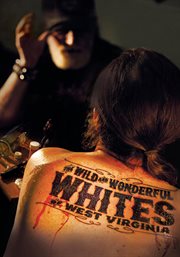Review by Booklist Review
Franklin County in southwestern Virginia has long been dubbed th. moonshine capital of the world. Current residents may reject or embrace the label, but this informative, engaging work wonderfully reveals the culture and colorful history of a region with intimate ties to the illegal production and distribution of alcohol during Prohibition. is a Franklin County natives, Thompson and his ancestors include both moonshiners and local police entrusted with thwarting the trade. But this is no crime saga with heroes and villains. Thompson shows how decent, hardworking families were devastated by the Great Depression and essentially ignored by the federal government. Many turned to moonshining out of desperation, turning a small, tolerated activity into a huge, vital industry for the county. Inevitably, the illicit activities involved a huge percentage of the local population, including high-ranking political and law enforcement officials, as a famous federal prosecution in 1935 revealed. Thompson uses oral histories and local archives while treating specific characters with sympathy and affection to convey a sense of everyday life in depressed yet appealing communities.--Freeman, Ja. Copyright 2010 Booklist
From Booklist, Copyright (c) American Library Association. Used with permission.
Review by Library Journal Review
Thompson (The Old German Baptist Brethren: Faith, Farming, and Change in the Virginia Blue Ridge) begins with a poignant prolog recounting his trip with his grandfather to search out the now-abandoned site of his great--grandfather's general store in Franklin County, VA, and sets the stage for an in-depth look at 1930s Appalachia. Focusing primarily on moonshine, Thompson provides context with discussions of the area's culture, agriculture, music, politics, and religion. VERDICT This readable scholarly work, in which the author successfully evokes a specific time and place and links it to the larger stage of U.S. history, is appropriate both for academic audiences and for readers with a personal or casual interest in the topic. A well-researched and well-written study and a thought-provoking portrait of 1930s Appalachia, it is recommended for academic libraries and all collections in and near Appalachia.-Courtney Greene, Indiana Univ. Libs., Bloomington (c) Copyright 2011. Library Journals LLC, a wholly owned subsidiary of Media Source, Inc. No redistribution permitted.
(c) Copyright Library Journals LLC, a wholly owned subsidiary of Media Source, Inc. No redistribution permitted.
Review by Kirkus Book Review
A scholarly dissection of the 1930s moonshine-based economy of Franklin County, Virginia.Filmmaker and author Thompson (Cultural Anthropology/Duke Univ.;The Old German Baptist Brethren: Faith, Farming and Change in the Virginia Blue Ridge, 2006, etc.) uses his family's history in Franklin County to delve deeper into the subject of moonshining, as well as the federal government's effort to halt its production. While the author focuses on the trial that all but toppled the illegal industry, far more interesting is the local color. Thompson brings the area to life, offering a portrait of a place that the government forgot, a blue-collar town run amok with barefoot children and well-armed men. With an utter lack of resources, county citizens were forced to "invent an economy from scratch"homemade liquor became the primary cash crop. However, Thompson argues that the guilty parties were not merely the moonshiners, but those who overlooked the crippling poverty that plagued the town. "Without a doubt," he writes, "some [moonshiners] were honest and hardworking and made whiskey for some cash money for their families. Others were out for profits well beyond a simple leaving." The author paints an overly sympathetic portrait of a crime-filled town, but he does so for good reason. This is a story as much about a culture wilting away as it is about the crimes that were committed there. As the moonshiners might argue, seeking a way to feed one's family can hardly be considered a crime. The town offered few alternatives, writes Thompson, and the people of Franklin County filled every jug they could for profit.A meticulous, exhaustive history of moonshining, poverty and Blue Ridge culture.]] Copyright Kirkus Reviews, used with permission.
Copyright (c) Kirkus Reviews, used with permission.


